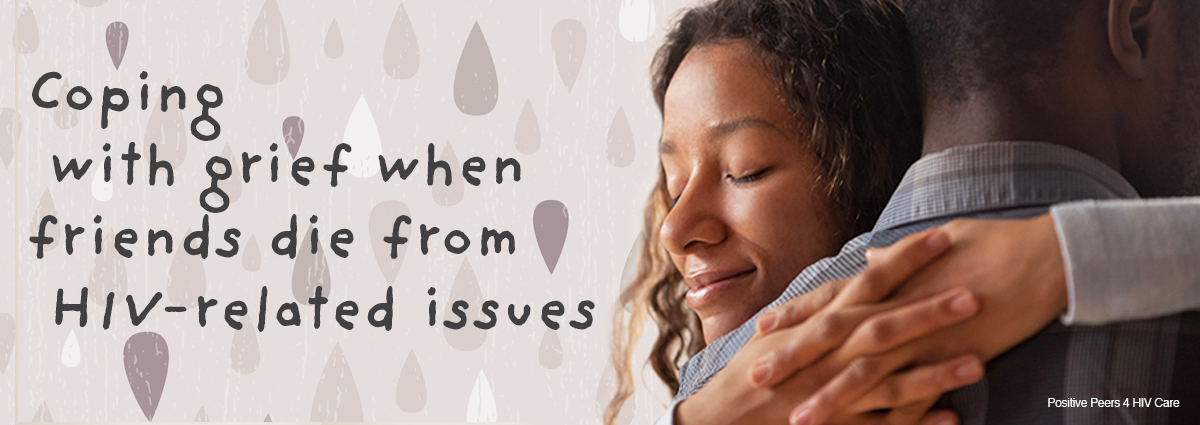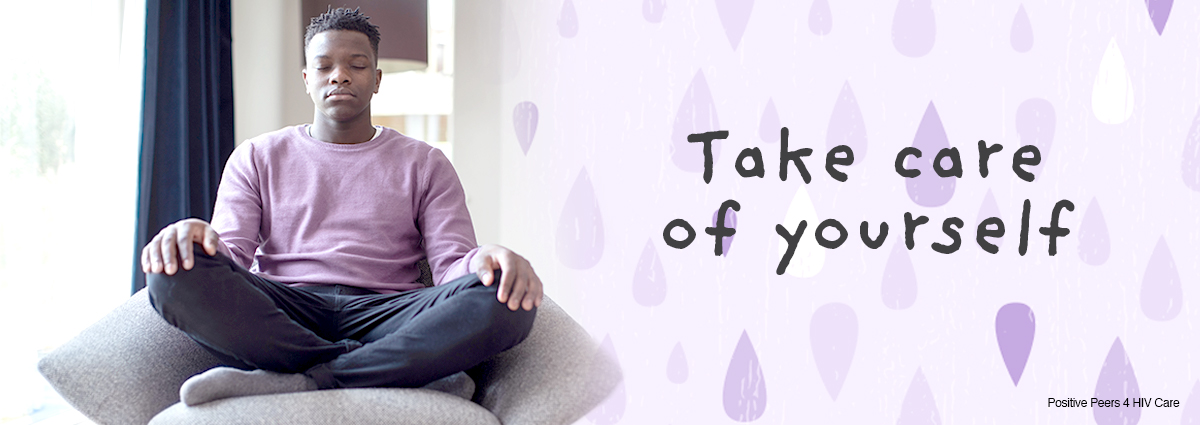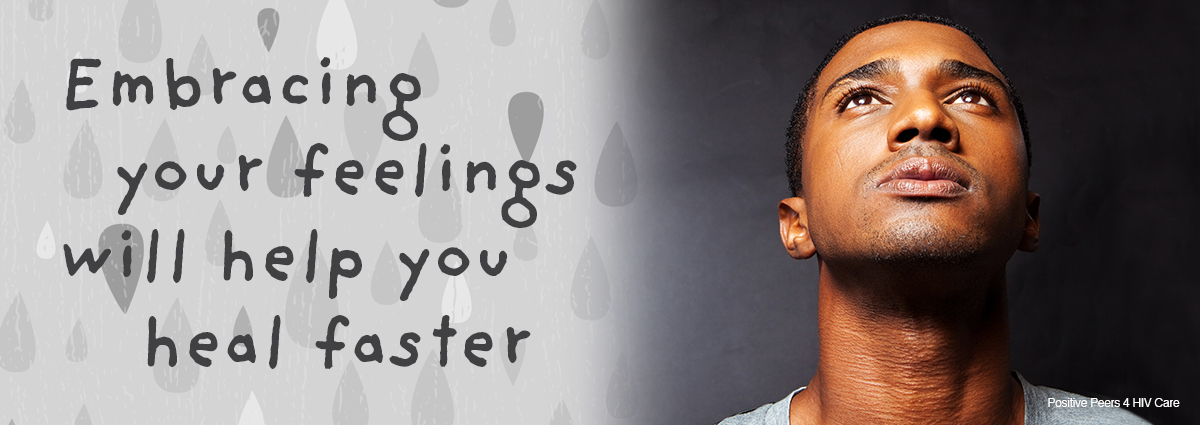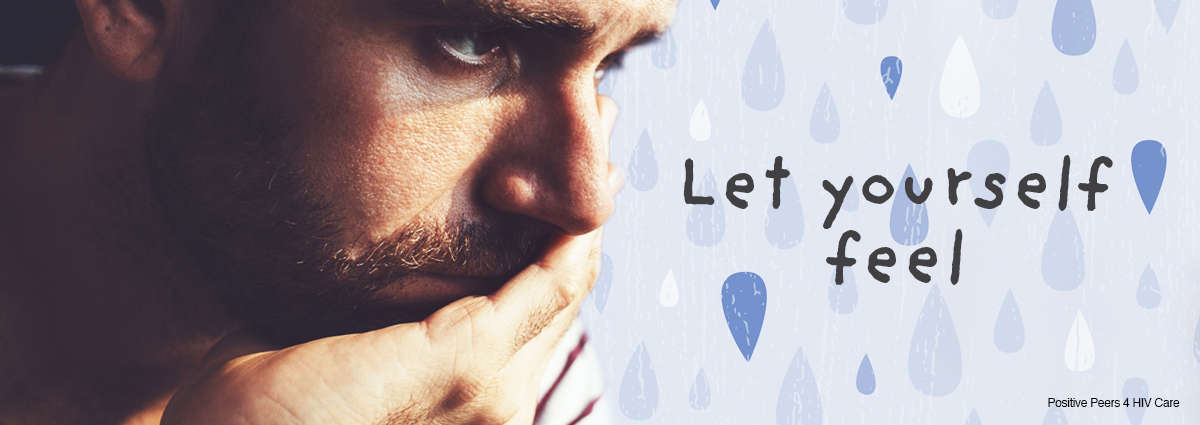
By: Ann K. Avery, MD, Infectious Disease Physician at MetroHealth Medical Center
Losing someone you love is one of the hardest things in the world. When you’re living with HIV, their death can be even harder if it’s from HIV-related complications. Not only is it a sad time, but it can also be a scary time.
What makes it so scary? It can make you start to think about your health because you have HIV too. There’s something about death that makes us very aware of our own mortality. For some people, it gives them the freedom to take charge of our lives finally, but others feel anxious about being HIV positive. Even if they thought they felt okay because of the medicine, resources, and knowledge available, it might cause some anxiety when something stressful happens.
It’s totally normal for grief to make you feel a bunch of different emotions whether you’re living with HIV or not. It feels pretty awful while you’re going through it, but it’s a normal part of the grieving process. Some of the big emotions you’ll feel while grieving the loss of a friend to HIV-related complications are:
- Anger: It never feels fair to lose a person we care about. It always feels like we lost them too soon. If you experience anger while grieving, you might direct it at doctors, other people you care about, or yourself. Some people get mad at the person who died for leaving them.
- Fear: A lot of people are scared when they first find out they’re HIV positive. If you’ve put that fear behind you, it could come back if you lose someone to HIV-related complications. Having a fear of the unknown is also really common.
- Guilt: You could feel guilty that you’re still here while your friend isn’t, or that you’re doing really well and they’re gone.
- Sadness: Most people feel sadness at some point during grief, and it can be overwhelming.
There are also quite a few physical symptoms of grief. Some of them include crying spells that seem to come out of nowhere, having trouble sleeping, eating too much or not eating enough, and a lack of productivity and focus.
Let yourself feel
After someone you love passes away, you’re going to experience a lot of different emotions. It’s totally normal, so try not to judge yourself or feel bad about it. Keeping your emotions bottled up will only stress you out. Remember, when you’re living with HIV, stress can mess with your T-cell count!
We’re not going to feel okay all the time, and that’s okay. Grief takes time to work through. We have to accept that there’s nothing we can do to change what’s happened and move forward even while grieving.
Come join our private, stigma-free, supportive community.
Health management tools with medication & appointment reminders.
Social networking in a community conversation & private chats.
Get support
We’ll talk more about it below, but your doctor can be a great resource for you. Finding a counselor can help you through the grieving process. There are also people who specialize in HIV-related deaths you can talk with.
Don’t forget your friends and family are there for you, too. Talking with them about how you’re feeling can help. If they offer to help you with something or offer to talk, it’s okay to take them up on that offer. They care about you!

Take care of yourself
Recommit to self-care: Practicing self-care when you’re grieving is more important than ever. You couldn’t save your friend—that’s not how it works—but you can control your personal wellness. Take some time to think about and sort out how you’re feeling. Talk to a counselor if things get overwhelming. Most importantly, remember you aren’t alone.
Eating is tricky: It can be tough to find the balance between eating too much and not eating enough when you’re stressed out. In those first days and weeks when the grief is still fresh, find something easy to eat that is nutrient-dense. If you’re living with HIV, tell your doctor or case manager you’re grieving, so they’re able to keep tabs on your physical health.
Water: Your body needs water to function. It’s so easy to get dehydrated if you’ve been crying a lot, and that isn’t good for you. Ask your friends and family if they can remind you to drink water, put sticky notes up around the house, or set alarms on your phone, so you remember. Whatever it takes, drink some water.
Doctor: We talked about seeing your doctor earlier in the article, but it’s good to remember. Talk to them about your health and future and make sure to review your treatment plan. Ask them whatever questions you have. It can put a lot of your fears to rest.
Move/Do Something: If you’re feeling up to it, get up and move around. There is never a quick fix when it comes to grief, but sometimes finding something to do helps things feel less painful for a little while. Try taking a walk, reading your favorite book, or even doing something to honor your friend’s memory. It might help.

Conclusion
Many people have depression and stress after finding out they’re HIV positive. If you are one of those people, grief can cause your depression and stress to worsen. Grief might cover all of it up for a little while, but they’re still there. Sometimes it feels easier to avoid letting yourself feel because grief is exhausting, but embracing your feelings will help you heal faster. You know yourself best and will know when you’re ready to begin working through your loss.
Related Blogs:



